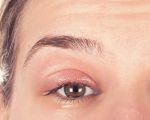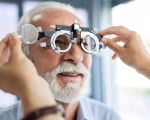- 1. Understanding the Connection Between High Blood Sugar and Eye Health
- 2. Why Eye Doctors Are Crucial for People with High Blood Sugar
- 3. Common Eye Conditions Associated with High Blood Sugar
- 4. How Eye Doctors Can Help Manage Eye Health in People with High Blood Sugar
- 5. When to See an Eye Doctor if You Have High Blood Sugar
- 6. Why Choose Eye Docs for Comprehensive Eye Care
1. Understanding the Connection Between High Blood Sugar and Eye Health
High blood sugar, often associated with diabetes, can have a significant impact on your overall health, including your vision. Prolonged high blood sugar levels can damage the blood vessels in the retina, the part of the eye responsible for sending visual signals to the brain. This condition, known as diabetic retinopathy, is one of the leading causes of vision loss in people with diabetes. Understanding how high blood sugar affects your eyes is crucial for preventing eye problems and maintaining good vision.
People with high blood sugar, particularly those with uncontrolled diabetes, are at a higher risk of developing eye problems. As blood sugar levels fluctuate, they can cause the lens of the eye to swell, leading to blurry vision. Over time, damage to the blood vessels can result in more severe complications, including diabetic macular edema (swelling in the macula), cataracts, and glaucoma. Regular check-ups with an eye doctor are essential for early detection and effective management of these conditions.
2. Why Eye Doctors Are Crucial for People with High Blood Sugar
Eye doctors play a vital role in the health of people with high blood sugar. Diabetic eye disease often develops without noticeable symptoms in its early stages, which is why routine eye exams are crucial for detecting problems before they lead to permanent damage. An eye doctor, particularly an optometrist or ophthalmologist, is trained to detect changes in the eyes caused by high blood sugar, and can offer appropriate treatments or referrals if necessary.
2.1 Early Detection of Diabetic Retinopathy
One of the most important reasons to visit an eye doctor if you have high blood sugar is to catch diabetic retinopathy early. An eye doctor can use specialized equipment to examine the retina and identify any damage caused by high blood sugar. Early detection allows for prompt treatment to slow down or even prevent further damage to the eyes. The earlier diabetic retinopathy is detected, the more likely you are to retain good vision.
2.2 Preventing Vision Loss
With proper management and regular eye check-ups, the risks of severe eye problems associated with high blood sugar can be minimized. Eye doctors can monitor your eye health over time and recommend lifestyle changes or medications to control blood sugar levels, ultimately preventing complications like blindness or significant vision impairment. Regular visits to an eye doctor are an essential part of managing the long-term effects of diabetes on eye health.
3. Common Eye Conditions Associated with High Blood Sugar
People with high blood sugar or diabetes are at a higher risk for several eye conditions. Some of the most common eye problems include:
3.1 Diabetic Retinopathy
Diabetic retinopathy is a condition that occurs when high blood sugar damages the blood vessels in the retina. It is the most common cause of blindness among adults with diabetes. The condition can develop in stages, starting with mild changes in the blood vessels that may not cause symptoms but can eventually lead to vision loss if left untreated.
3.2 Diabetic Macular Edema (DME)
Diabetic macular edema occurs when fluid leaks from the damaged blood vessels into the macula, the part of the retina responsible for central vision. This swelling can cause blurred or distorted vision and, if left untreated, can lead to permanent vision loss. Early detection and treatment by an eye doctor can help reduce the severity of DME.
3.3 Cataracts
People with high blood sugar are more likely to develop cataracts, a condition in which the lens of the eye becomes cloudy, leading to blurry vision. Cataracts are more common in older adults, but high blood sugar can accelerate their development. Cataract surgery can restore vision, but the best course of action is to manage blood sugar levels to slow the progression of cataracts.
3.4 Glaucoma
High blood sugar can increase the risk of glaucoma, a group of eye diseases that damage the optic nerve. Glaucoma is often associated with high eye pressure and can lead to gradual vision loss if untreated. Regular eye exams are essential for detecting glaucoma early, as the condition often has no symptoms until significant damage has occurred.
4. How Eye Doctors Can Help Manage Eye Health in People with High Blood Sugar
Eye doctors offer a variety of services to help manage eye health in individuals with high blood sugar. Here’s how they can assist:
4.1 Regular Eye Exams
Routine eye exams are the cornerstone of maintaining good eye health, especially for people with high blood sugar. Eye doctors can perform dilated eye exams to check for early signs of diabetic eye disease, including retinopathy, macular edema, and cataracts. These exams allow for early intervention and treatment, helping to preserve vision over time.
4.2 Laser Therapy and Injections
If diabetic retinopathy or diabetic macular edema is detected, your eye doctor may recommend laser therapy or injections of medication to prevent further damage. Laser treatments can help seal leaking blood vessels in the retina, and injections can reduce swelling and prevent vision loss. These treatments, when administered early, can significantly reduce the risk of severe complications.
4.3 Education and Advice
In addition to medical treatments, eye doctors also provide valuable advice on how to manage blood sugar levels, eat a balanced diet, and adopt healthy habits to reduce the risk of eye complications. Managing blood sugar is critical in preventing or slowing the progression of diabetic eye disease, and eye doctors can work with other healthcare providers to create a comprehensive care plan.
5. When to See an Eye Doctor if You Have High Blood Sugar
If you have high blood sugar or diabetes, it’s essential to schedule regular eye exams even if you don’t notice any changes in your vision. However, there are certain symptoms and situations that should prompt you to see an eye doctor as soon as possible:
5.1 Sudden Vision Changes
If you experience sudden vision changes, such as blurred vision or difficulty seeing clearly, it’s important to seek medical attention. This could be a sign of diabetic retinopathy, cataracts, or other eye conditions related to high blood sugar.
5.2 Eye Pain or Pressure
Experiencing eye pain or a feeling of pressure in the eyes is another reason to see an eye doctor. This could indicate glaucoma or other serious eye problems that require immediate attention.
5.3 Floating Spots or Blurred Vision
Seeing floaters (small spots or flashes of light) or experiencing blurred vision may indicate diabetic retinopathy or macular edema. If these symptoms occur, it’s important to visit an eye doctor promptly to avoid further complications.
6. Why Choose Eye Docs for Comprehensive Eye Care
At Eye Docs, we specialize in providing comprehensive eye care for individuals with high blood sugar. Our experienced team of eye doctors offers regular screenings, treatments, and advice to help you maintain your eye health and prevent complications from high blood sugar. We work closely with other healthcare providers to ensure that your vision and overall health are well-managed. Visit us today to schedule an appointment and take the first step toward protecting your vision for the future!








